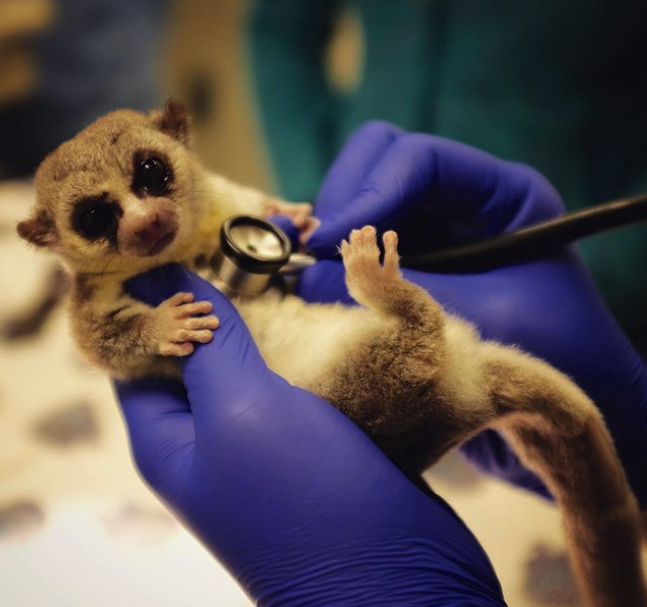By DLC Research Scientist Lydia Greene, Ph.D.
Follow Lydia on Instagram! @lemurscientist

Tottenham receives a post-torpor wellness exam on 2/14/2020 by DLC veterinarian Dr. Laura Ellsaesser. Photo by Lydia Greene.
This year’s hibernation season finished this week at the Duke Lemur Center, and the participating dwarf lemurs received a physical exam on Friday. Here’s Tottenham (“Tot”) having her heartbeat counted by veterinarian Dr. Laura Ellsaesser.
When hibernating, a dwarf lemur naturally reduces its body temperature to match the temperature of the surrounding environment. The lemur also naturally reduces its heartbeat to a mere 8-30 beats per minute. Now that she’s warm and fully active, Tot’s heartbeat is back up to ~200 beats per minute, almost too fast for Dr. Laura to count!
As temperatures got warmer, Tot’s voracious appetite also reappeared. After barely touching any of the food we offered for months, Tot is now cleaning every last crumb off her plate.
While Tot was in hand with our vets, we collected important samples for our non-invasive research, like feces and cheek swabs. These samples will help us study her gut microbiota and metabolism, as well as any genetic changes, like potential telomere elongation, that might have occurred while she hibernated. Unlocking the mechanisms of hibernation in these lemurs could be the key to inducing torpor in humans, allowing for better medical care and even space travel!
Learn more about fat-tailed dwarf lemurs on the DLC’s Meet the Lemurs webpage.

